The Venture Intelligence APEX Awards event is a unique gathering of top executives in the Indian Deal ecosystem including from Limited Partners, PE/VC firms, Investment Banks, Consultants, Corporate Law firms, HR firms etc. The event features a High Power PE/VC industry panel that reflects on the recent trends and the challenges that lie ahead from a dealmaker’s perspective.This year’s LP-GP Panel, chaired by A V Seshadrinathan, Managing Director of Basiz Fund Services, was titled “Can PE become PSPD?” and focused on how Indian PE managers can build their firms for sustainable success.
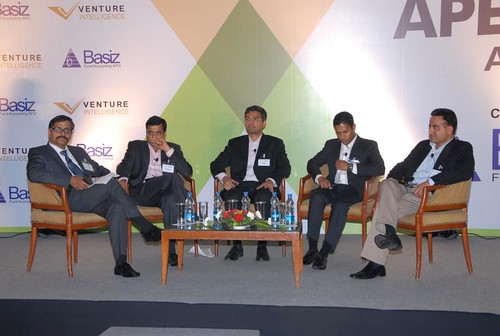 (L-R) Sesh A.V. of Basiz Fund Services, Vishal Tulsyan of Motilal Oswal Private Equity, Paresh Thakker of Religare, Anand RP of Squadron Capital, Avnish Bajaj of Matrix Partners India
(L-R) Sesh A.V. of Basiz Fund Services, Vishal Tulsyan of Motilal Oswal Private Equity, Paresh Thakker of Religare, Anand RP of Squadron Capital, Avnish Bajaj of Matrix Partners India
More about the topic: Infosys became the darling of investors with Narayana Murthy’s famous Predictability-Sustainability-Profitability-De-risking (PSPD) formula. With 900+ investments turning over 4+ years old this year and with so many GP teams having been on the road for 12+ months, 2012 will clearly be a year of reckoning for Indian Private Equity & Venture Capital. Can the industry take a leaf from Infy’s Mantra to re-assure LPs that the best years are ahead of us?
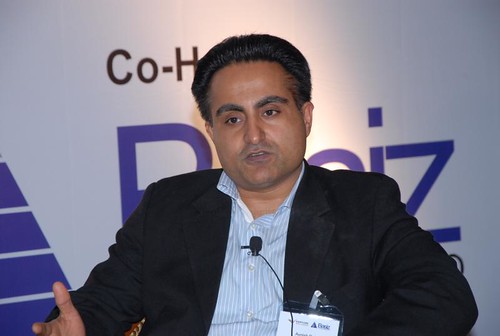 Avnish Bajaj, Managing Director, Matrix Partners India, said that since sentiment related market (and hence valuation) swings in India is very high, his firm has decided to time its investments and exits – within its focus sectors – accordingly. For instance, the recent bursting of the second “Internet bubble” in India is presenting the firm with interesting investment opportunities. “We have to combine strategy and opportunism. Within a strategy, you have to be opportunistic. However, opportunism cannot be a strategy,” he remarked. Bajaj also pointed out that identifying new sectors – that are not represented in the public markets – is the best way for PE fund managers to showcase the edge this asset class enjoys over public market strategies.
Avnish Bajaj, Managing Director, Matrix Partners India, said that since sentiment related market (and hence valuation) swings in India is very high, his firm has decided to time its investments and exits – within its focus sectors – accordingly. For instance, the recent bursting of the second “Internet bubble” in India is presenting the firm with interesting investment opportunities. “We have to combine strategy and opportunism. Within a strategy, you have to be opportunistic. However, opportunism cannot be a strategy,” he remarked. Bajaj also pointed out that identifying new sectors – that are not represented in the public markets – is the best way for PE fund managers to showcase the edge this asset class enjoys over public market strategies.
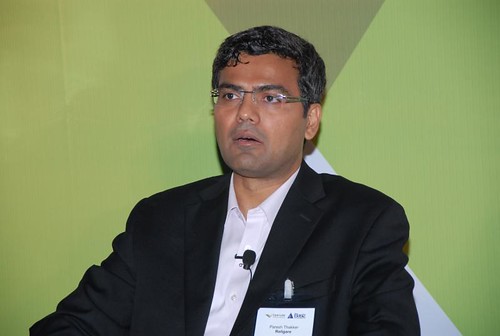 Paresh Thakker, Head – Global Asset Management and Group M&A, Religare, felt one of the main reasons for disappointing exits in Indian private equity is that Indian GPs tend to pay high entry prices on deals – often at premiums to listed peers. The fact that their contracts tend to have a “put option” on the investee company or its promoters tends to make Indian PE firms more lax on valuations. Thakker agreed that having more local capital – especially institutions like banks and insurance companies – participate more in the PE asset class would be good for the overall ecosystem. For instance, it would help the issues faced by growth-oriented SMEs get heard at various fora that these large institutions can influence.
Paresh Thakker, Head – Global Asset Management and Group M&A, Religare, felt one of the main reasons for disappointing exits in Indian private equity is that Indian GPs tend to pay high entry prices on deals – often at premiums to listed peers. The fact that their contracts tend to have a “put option” on the investee company or its promoters tends to make Indian PE firms more lax on valuations. Thakker agreed that having more local capital – especially institutions like banks and insurance companies – participate more in the PE asset class would be good for the overall ecosystem. For instance, it would help the issues faced by growth-oriented SMEs get heard at various fora that these large institutions can influence.
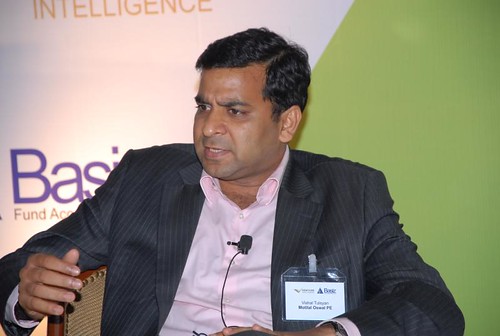 Vishal Tulsyan, CEO, Motilal Oswal Private Equity, pointed how the issue of entry valuations is a bit more nuanced since it’s not easy for investors to get sizeable exposure in mid-market listed firms without driving up the price. Also, PE firms investing in unlisted companies have other levers to create value rather than just depend on “Mr.Market” to deliver the upside. He felt that strategic sales will continue to present good exit opportunities for PE/VC investors over the next few years.
Vishal Tulsyan, CEO, Motilal Oswal Private Equity, pointed how the issue of entry valuations is a bit more nuanced since it’s not easy for investors to get sizeable exposure in mid-market listed firms without driving up the price. Also, PE firms investing in unlisted companies have other levers to create value rather than just depend on “Mr.Market” to deliver the upside. He felt that strategic sales will continue to present good exit opportunities for PE/VC investors over the next few years.
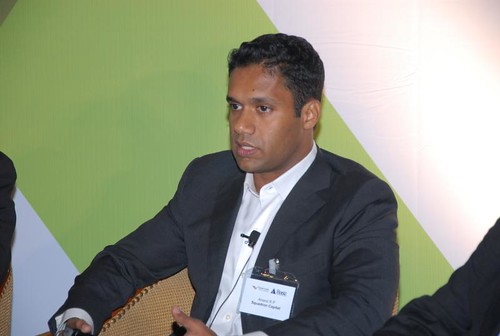 Anand RP, Investment Director, Squadron Capital, said it is important for regulations to be designed such that there is not any significant difference in the treatment of domestic and foreign capital. He advised GP teams to “stick to their knitting” and said that trying to combine VC and PE strategies within the same firm might not be a good idea. Also, GPs – especially those running their first funds – need to display a bootstrapped approach when it comes to their salaries, etc – so that they have the creditability when they ask entrepreneurs that they fund to treat the investment frugally. Venture Intelligence is the leading provider of data and analysis on private equity, venture capital and M&A deals in India. View free samples of Venture Intelligence newsletters and reports.
Anand RP, Investment Director, Squadron Capital, said it is important for regulations to be designed such that there is not any significant difference in the treatment of domestic and foreign capital. He advised GP teams to “stick to their knitting” and said that trying to combine VC and PE strategies within the same firm might not be a good idea. Also, GPs – especially those running their first funds – need to display a bootstrapped approach when it comes to their salaries, etc – so that they have the creditability when they ask entrepreneurs that they fund to treat the investment frugally. Venture Intelligence is the leading provider of data and analysis on private equity, venture capital and M&A deals in India. View free samples of Venture Intelligence newsletters and reports.
![]()